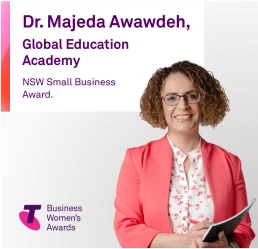
Has this phrase come out of your mouth before? If so, I don’t blame you. The mentality of concealing your child’s tutoring is merely the fruit of the negative stigma that surrounds tutoring.
There is a common perception that children who seek additional help through tutoring or coaching are “struggling”, “below average” or “underperforming” at school.
As a parent, it is understandable for you to not want your child to receive any of these labels when it comes to their intelligence. Though the world may tell us otherwise, children are no less smart for having a tutor.
This stigma around seeking further learning support prevents even students who are academically gifted from asking for assistance when needed. Unfortunately, it communicates to our children that any difficulty at school is equated with failure.
Every student, no matter how well they do in school, has untapped potential waiting to be discovered. The stigma that we have allowed around asking for help stops them from reaching their full potential.
Take a moment to consider this – you don’t see the negative stigma around:
These individuals participate in some form of “coaching” so to speak, not necessarily because they are underperforming but because they seek continual growth.
We all need help from time to time. So, why is a child attending tutoring classes to benefit their education seen in a negative light?
Children tend to not see the stigma the way we do as adults. They don’t hesitate to ask for help to tie their shoes or pronounce a word that is unfamiliar to them. This perception is not inherent, it is taught.
If our children hold the same views, it is because they have observed our actions and listened to our conversations.
Perhaps this is something we have developed in adulthood from the general embarrassment around asking for help?
In workplaces, many of us face constant scrutiny. We are afraid that any known weaknesses will be used against us and that asking for help will be interpreted as not being good enough.
Growing up with this mindset can be detrimental to one’s mental and physical health. It contributes to increased levels of stress and pressure that comes with doing everything alone and never asking for help.
What we need to learn is that part of achieving success is asking for help when you need it.
[/et_pb_text][et_pb_image src=”https://globaleducationacademy.com.au/wp-content/uploads/2019/09/0528GlobalEducationAcademy-1.jpg” _builder_version=”4.3.2″][/et_pb_image][et_pb_text _builder_version=”4.3.2″ text_text_color=”#000000″ text_font_size=”19px” text_line_height=”1.5em” inline_fonts=”Bubblegum Sans”]
Rather than evidence of incompetence, tutoring and coaching should instead be seen as dedication to personal development and commitment to improving a child’s learning abilities.
This additional help via tutoring or coaching positions your child to reach their full potential by:
For the students who may feel too uncomfortable, nervous, or shy to ask their teacher a question in front of their entire class, tutoring provides a safe environment for them to do so.
In many cases, students who seek coaching are not struggling in school but rather, their needs are not being met in the classroom. It then takes a proactive parent to recognise this need and take action.
It is time we start taking steps towards changing the stigma that surrounds tutoring.
There are a few ways you can contribute to changing the stigma around tutoring:
We all have a part to play in changing this stigma. Not just for our children, but also for ourselves.
For more information about Global Education Academy and how our tutoring programs can help your child reach their full potential, please feel free to call us on 1300 001 432.







